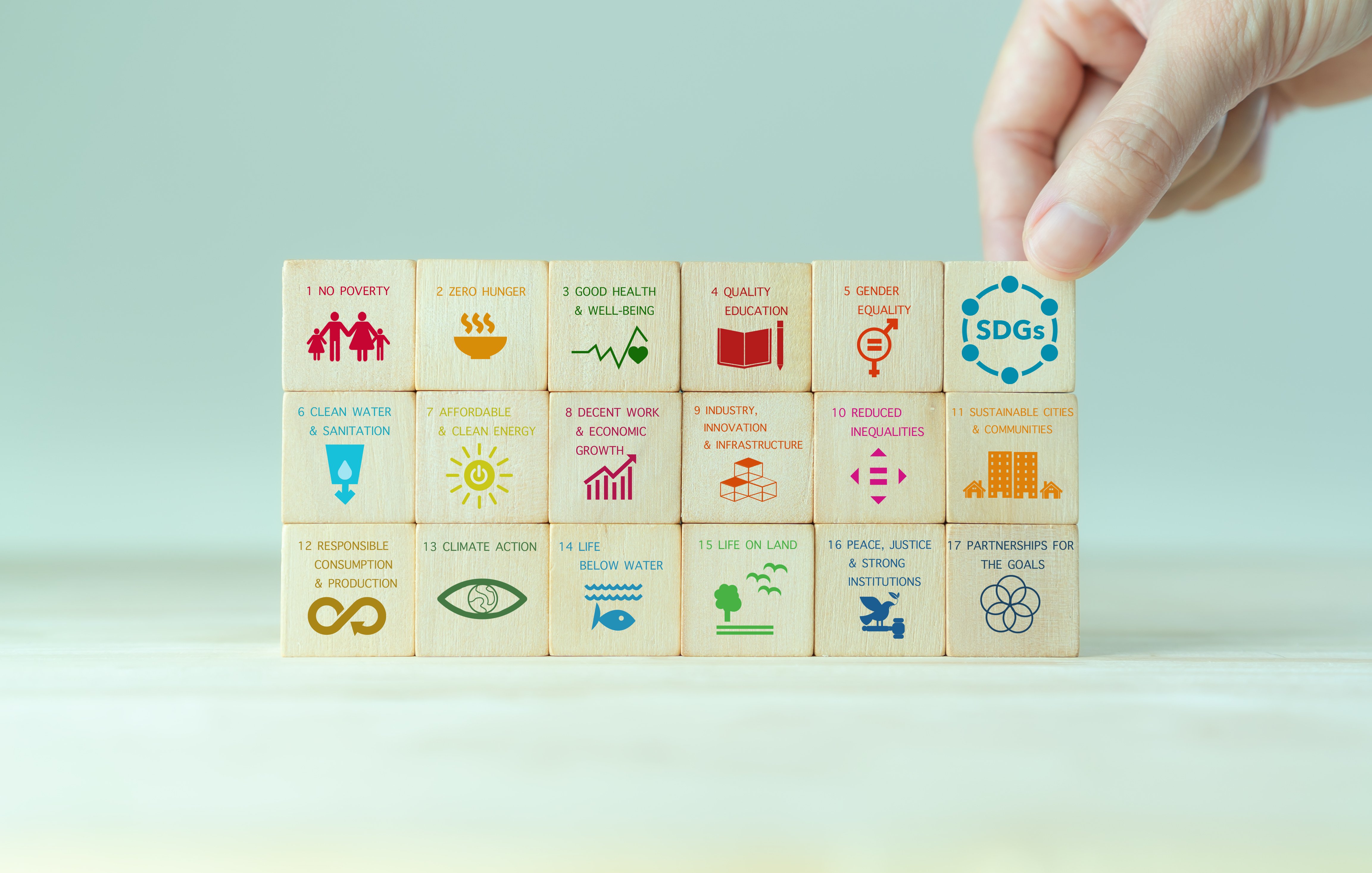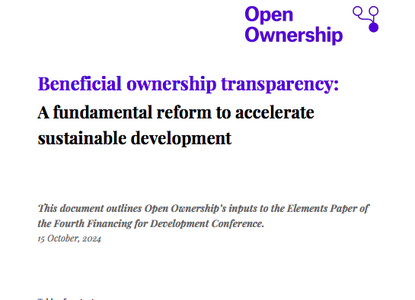Financing for Development: Beneficial ownership transparency as a fundamental reform to drive sustainable development

Photo: iStock
In June 2025, Spain will host the Fourth Financing for Sustainable Development (FfD4) Conference in Seville. Heads of state and high-level officials from United Nations (UN) member countries will convene to discuss priorities for fully implementing the Sustainable Development Goals (SDGs) and reforming the international financial architecture.
This poses a key opportunity to advance the potential of beneficial ownership transparency (BOT) to support the FfD4 goals in order to not only tackle corruption and curb illicit financial flows (IFFs), but also uphold the key pillars of the Financing for Development agenda, from supporting effective taxation to promoting sustainable investment.
Beneficial ownership transparency: A cross-cutting issue
Companies are embedded in all aspects of society and are crucial for investment in sustainable development. Corporate transparency is an integral building block of a fair financial system: knowing who owns, controls, and benefits from companies and other corporate vehicles is essential to curbing corruption, money laundering, and tax evasion. Done well, a global system of beneficial ownership (BO) disclosure will provide a solid foundation of data, ensuring that corporate complexity can be a driver of innovation rather than an enabler of IFFs and unfair or illegal practices.
In our recent submission to the FfD4 elements paper, which will inform the zero draft to be discussed by government representatives, Open Ownership highlighted how BOT contributes to each of the FfD4 pillars:
Mobilising domestic public resources: Well-implemented BO registers can play a key role in enabling effective domestic public revenue mobilisation through enabling effective tax collection and strengthening integrity of public procurement and licensing in high-risk sectors, such as fisheries and the extractive industries. Preventing the misuse of opaque corporate vehicles, such as trusts and other legal arrangements, and strengthening tax cooperation by ensuring data in central BO registers is accessible to tax authorities directly, automatically, and in standardised formats, is of fundamental importance for enabling countries to raise the resources they need to implement the SDGs.
Domestic and international private business and finance: The private sector is crucial for achieving the SDGs, and ensuring that it operates in a transparent and accountable way levels the playing field for legitimate businesses. Where BO information is available to businesses, they can manage risks and inform investment decisions, for instance, by conducting more effective due diligence on suppliers, customers, markets, and competitors. Additionally, making professional service providers (such as lawyers, accountants, etc.) allies in integrity who contribute to BO disclosure systems and are key users of BO information will strengthen international business and finance. Robust action should be taken against those who breach legal and professional standards to enable corruption and financial crime.
International development cooperation: Official Development Assistance (ODA) financing is an essential resource for many low- and middle-income countries needing to implement systemic reforms such as BOT. Embedding these reforms within digital transformation projects where BO registers are integrated with other government platforms, such as tax systems and national identity databases, and including mechanisms to measure the effectiveness of ODA-financed BOT reforms and build evidence of their impact, will help increase the sustainability of reforms and reduce long-term dependence on ODA.
International trade as an engine for development: Including provisions to collect and use BO information in trade agreements can support the integrity of international trade and cross-border transactions by ensuring screening and transparency on business operations. BO information can also help prevent environmental crime and illegal trade, as recently highlighted by the Financial Accountability and Corporate Transparency Coalition, which showed how anonymously owned corporate vehicles masked true ownership in the Amazon.
Managing debt and debt sustainability: Leveraging BOT to increase understanding of who is managing debt instruments can help ensure integrity in the system and prevent its mismanagement. BO information can also improve oversight of private financing of development outcomes and is relevant to understanding ownership and control in private investment funds, which are increasingly leveraged to co-finance these. Emerging evidence shows misuse of investment funds, particularly private funds, yet in many jurisdictions they are exempt or inadequately covered by BOT requirements.
Science, technology, innovation, and capacity building: Leveraging analytical tools, artificial intelligence, and machine-learning approaches through interoperable BO information will maximise its use and impact. Promoting the adoption of data standards, such as Open Ownership’s Beneficial Ownership Data Standard, will allow BO data to be combined with other datasets and connected transnationally (for instance, with politically exposed persons databases, bank accounts, and other corporate registers), and in turn prevent corruption, support international tax cooperation, and improve risk assessments to prevent financial crime.
Towards a sustainable and inclusive financial system
Financing for the SDGs over the coming years will be guided by key decisions made at the upcoming FfD4. As countries seek to achieve sustainable growth and navigate the energy transition, the FfD4 process should recognise the cross-cutting importance of BOT to fully implementing the SDGs and to supporting reform of the international financial architecture. Open Ownership is actively contributing to the debate, and will continue to provide evidence and insights throughout the road to Seville and beyond.
To read our full submission to the FfD4 elements paper, click here.
And watch our side event at the FfD4 multi stakeholder hearings, co-organised with the United Nations Office on Drugs and Crime:

